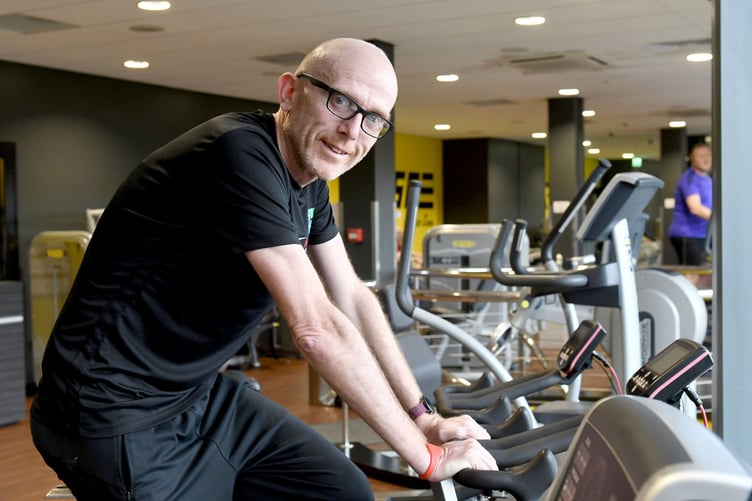As we enter a new year, many of us say we’d like to get fitter and maybe lose a few pounds.
But broken new year’s resolution after broken new year’s resolution shows it’s not easy as it sounds.
We asked Gianni Epifani, the physical activity and health and wellbeing manager at the government agency Manx Sport and Recreation, for some tips.
The key to a successful exercise regime is to find one you like.
Gianni said for some people that might be the gym. For others it certainly won’t be.
Others might like classes but some won’t.
‘Try to be active in the way you enjoy,’ Gianni, who is.
‘For me personally, the idea of Zumba gives me a sickly feeling bit I’m happy to run around in circles.
‘For others, it’s exactly the opposite.’
He suggested that for many people exercising with friends or colleagues can be good too, as there is a social aspect.
‘You should embed it in your daily pattern,’ he said. ‘You should look forward to doing exercise.’
When it becomes part of the routine so exercising is automatic.
‘Once you become more active, you start to feel you have more energy and you will feel fitter.
‘Rather than driving to work or the shops, you might feel like walking instead. You feel positive endorphic results and have higher energy levels.’
That is then likely to have benefits for mental health too.
When people have to take a break because of illness, for example, it shouldn’t put them off.
‘It’s not the end of the world if you miss two or three weeks.
‘You have to accept there will be setbacks. You sometimes have to go backwards to go forwards.’
It is worth checking out the morning and lunchtime classes available at the National Sports Centre to see if there’s something that might appeal to you.
The top tips:
1. Consistency and stability: Habits provide a sense of structure and stability in our lives. They create a routine that can help reduce stress and anxiety, as we know what to expect and when.
2. Efficiency and productivity: Habits automate certain behaviours, making them more efficient. When something becomes a habit, we do it without much conscious thought, which can free up mental energy for other tasks.
3. Goal achievement:
Habits are a powerful tool for achieving long-term goals. By consistently taking small steps towards a goal, we are more likely to see progress and ultimately achieve it.
4. Improved mental health:
Establishing positive habits can have a positive impact on mental health. Activities like exercise, meditation, and journaling, when done regularly, have been shown to reduce symptoms of anxiety and depression.
5. Physical health benefits: Many habits are related to physical health, such as regular exercise, balanced nutrition, and getting enough sleep. These habits contribute to overall wellbeing by improving physical health and energy levels.
6. Skill development:
Habits are a key mechanism for skill acquisition. Through regular practice, we can develop and hone new skills, which can lead to increased confidence and a sense of accomplishment.
7. Reduced decision fatigue:
Habits eliminate the need to make constant decisions about routine tasks. For example, if you have a habit of preparing a healthy breakfast each morning, you don’t have to expend mental energy deciding what to eat.
8. Long-term behaviour change: Habits are more likely to lead to long-lasting behaviour change compared to short-term efforts. They become ingrained in our routine, making it easier to sustain positive behaviours over time.
9. Increased autonomy and control:
Developing positive habits empowers individuals to take control of their lives. It allows them to make intentional choices that align with their values and goals.
10. Self-improvement and personal growth: Habits are a cornerstone of personal development. By committing to positive habits, individuals can continuously work towards becoming the best version of themselves.
11. Sense of achievement and mastery:
Successfully building and maintaining a habit can provide a sense of achievement and mastery over oneself. It’s a tangible demonstration of one’s ability to set and accomplish goals.
12. Enhanced resilience:
Habits can serve as anchors during challenging times. Maintaining established routines can provide a sense of normalcy and control even in the face of adversity.
Overall, habits play a significant role in promoting physical, mental, and emotional wellbeing.
They contribute to a balanced and fulfilling life by helping individuals take care of their physical and mental health, achieve their goals, and cultivate a sense of purpose and accomplishment.




